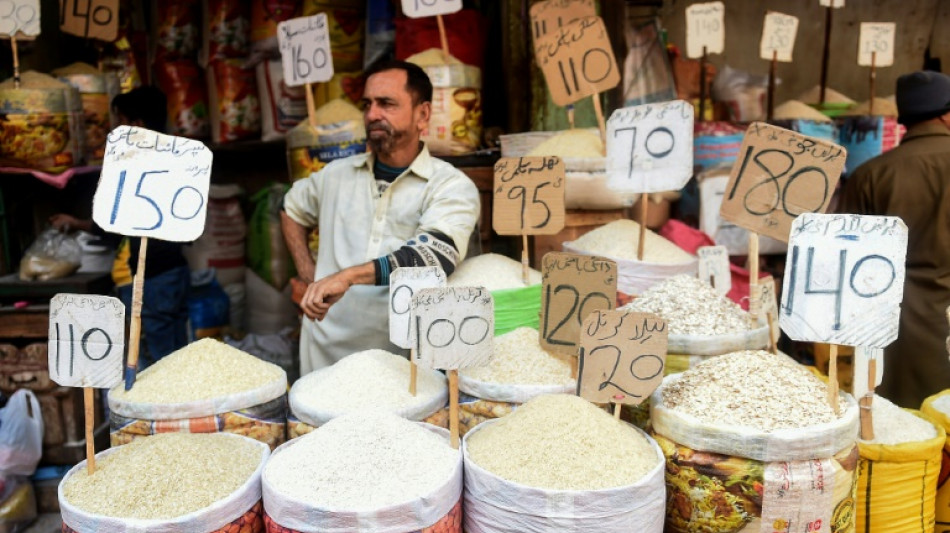
-
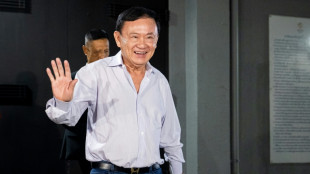 Thai ex-PM leaves country before parliament votes on leadership
Thai ex-PM leaves country before parliament votes on leadership
-
NZ army appeals soldier's 'inadequate' spying sentence

-
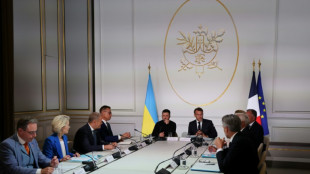 Coalition of willing commits to Ukraine force if peace agreed
Coalition of willing commits to Ukraine force if peace agreed
-
Powerhouse Australia 'up for challenge' of defending Women's World Cup
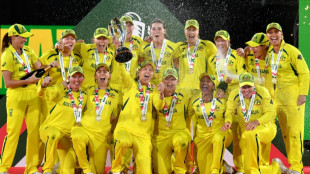
-
 Argentina's Independiente disqualified from Copa Sudamericana over stadium brawl
Argentina's Independiente disqualified from Copa Sudamericana over stadium brawl
-
Luis Suarez apologizes after Leagues Cup spitting incident

-
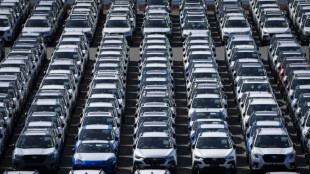 Trump signs order to lower US tariffs on Japan autos to 15%
Trump signs order to lower US tariffs on Japan autos to 15%
-
Germany lose opening World Cup qualifier as Spain cruise

-
 Nagelsmann slams 'lack of emotion' in Germany's loss to Slovakia
Nagelsmann slams 'lack of emotion' in Germany's loss to Slovakia
-
Germany fall 2-0 to Slovakia in World Cup qualifying opener

-
 Cape Verde islanders win to stay on course for World Cup debut
Cape Verde islanders win to stay on course for World Cup debut
-
Breetzke stars as South Africa edge England by five runs for ODI series win

-
 Germany fall 2-0 to Slovakia in 2026 World Cup qualifying opener
Germany fall 2-0 to Slovakia in 2026 World Cup qualifying opener
-
Flamengo's Henrique out for 12 games for alleged match-fixing

-
 Cash on hand to clinch point for Poland against Netherlands
Cash on hand to clinch point for Poland against Netherlands
-
Spain thrash Bulgaria in opening 2026 World Cup qualifier

-
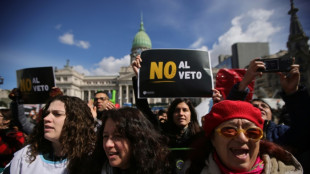 Argentine Congress overturns Milei veto on disability funds
Argentine Congress overturns Milei veto on disability funds
-
Japanese star Oda chasing career Slam at US Open
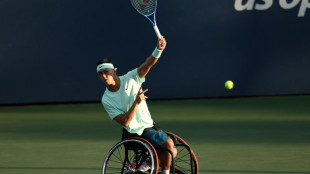
-
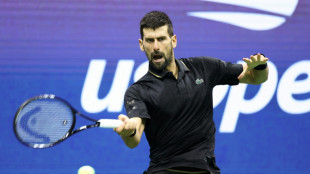 Djokovic aims to 'mess up' Sinner-Alcaraz plans at US Open
Djokovic aims to 'mess up' Sinner-Alcaraz plans at US Open
-
Trump's Fed pick plans to keep White House job while at central bank
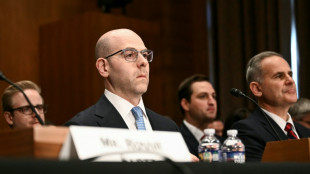
-
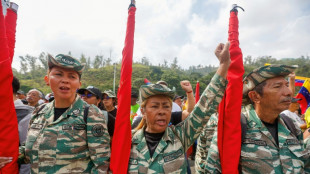 In face of US 'threat,' how does Venezuela's military stack up?
In face of US 'threat,' how does Venezuela's military stack up?
-
Israel military says controls 40 percent of Gaza City
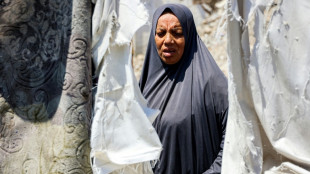
-
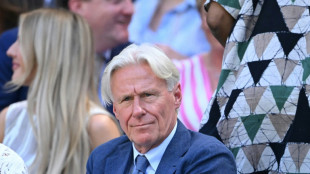 Tennis icon Borg battling cancer says publicity for autobiography
Tennis icon Borg battling cancer says publicity for autobiography
-
Argentina charges Nazi's daughter for concealing decades-old art theft

-
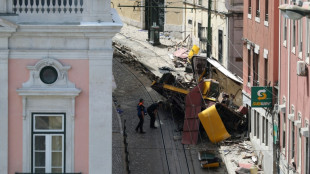 Portugal releases first details of 16 killed in funicular crash
Portugal releases first details of 16 killed in funicular crash
-
US sues power company over deadly Los Angeles wildfire
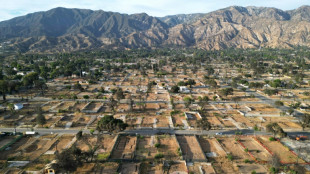
-
 After change of club and Italy coach, fresh beginnings for Donnarumma
After change of club and Italy coach, fresh beginnings for Donnarumma
-
Levy makes shock decision to quit as Spurs chairman
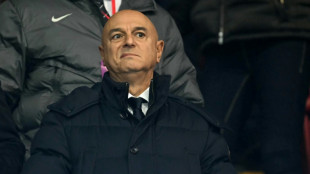
-
 UK court convicts asylum seeker of sexual assault
UK court convicts asylum seeker of sexual assault
-
Fashion, cinema stars hail 'love affair' with Armani

-
 France star Mbappe calls for players to get more time off
France star Mbappe calls for players to get more time off
-
Trump's Fed governor pick vows to uphold central bank independence
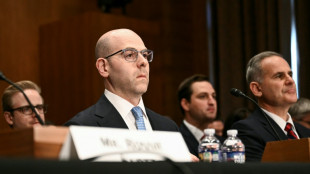
-
 Norris brushes off Dutch setback before Italian GP battle with Piastri
Norris brushes off Dutch setback before Italian GP battle with Piastri
-
In-form Breetzke stars as South Africa post 330-8 against England

-
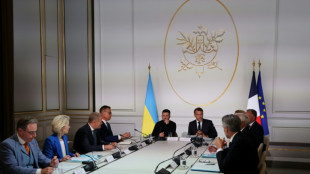 France says 26 countries commit to Ukraine deployment if peace agreed
France says 26 countries commit to Ukraine deployment if peace agreed
-
White House quietly drops WTO, ILO from foreign aid cut list
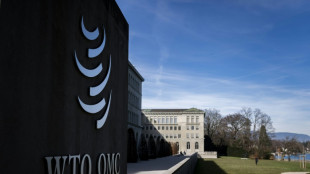
-
 Wales edge Kazakhstan to boost World Cup hopes
Wales edge Kazakhstan to boost World Cup hopes
-
Ayuso sprints to Vuelta stage 12 victory as tensions ease

-
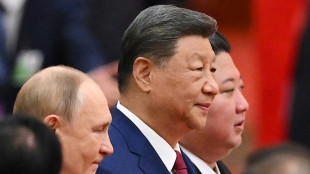 Could humans become immortal, as Putin was heard telling Xi?
Could humans become immortal, as Putin was heard telling Xi?
-
Xi tells Kim North Korea's importance to China 'will not change'
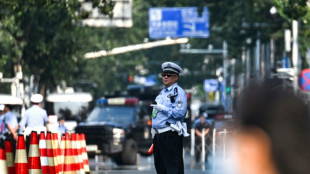
-
 France detains seven over new cryptocurrency kidnapping
France detains seven over new cryptocurrency kidnapping
-
Europe pledges postwar 'reassurance force' for Ukraine: Macron
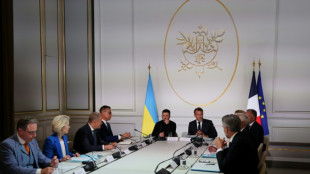
-
 Hollywood hails Armani, designer to the stars
Hollywood hails Armani, designer to the stars
-
RFK Jr defends health agency shake up, Democrats call for his ouster
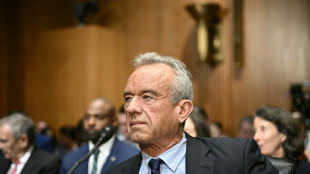
-
 Bike-loving Dutch weigh ban on fat bikes from cycle lanes
Bike-loving Dutch weigh ban on fat bikes from cycle lanes
-
With restraint, Armani stitched billion-dollar fashion empire

-
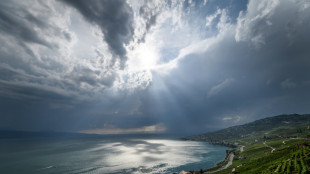 France, Switzerland agree on Rhone, Lake Geneva water management
France, Switzerland agree on Rhone, Lake Geneva water management
-
US trade gap widest in 4 months as imports surged ahead of tariffs
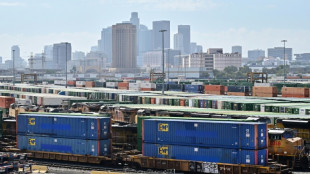
-
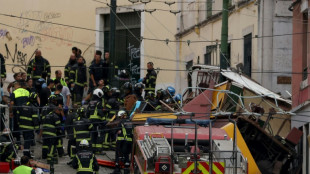 Portugal mourns 16 killed in Lisbon funicular crash
Portugal mourns 16 killed in Lisbon funicular crash
-
Alarm in Germany as 'dangerous' Maddie suspect set to walk
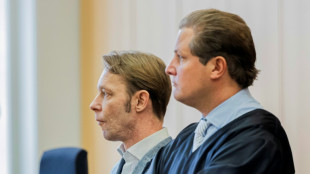

Pakistan's economic woes put PM Khan's future in doubt
Housewife Maira Tayyab has considered begging for money to feed her family in inflation-hit Pakistan, while shop owner Mohammad Hanif finds his thoughts turning to crime.
They're too proud and honest to act on the impulse, but their woes are shared by millions of Pakistanis whose disgruntlement threatens Prime Minister Imran Khan's chances of re-election next year.
"We cannot beg as we are white-collar people," Tayyab, 40, told AFP in Karachi, a bustling port city that is Pakistan's financial capital.
But, she said: "We don't know how we make ends meet."
Inflation hit about 10 percent last year, according to the World Bank. The cooking oil price is up 130 percent since Khan took power and the cost of fuel has risen 45 percent to 145 rupees ($0.82) a litre in a year.
Tayyab's sentiments are echoed by Kursheed Sharif, a 50-year-old mother of five, who unleashes a slew of curses as she describes her family's woes.
"Only death seems an alternative to survival under this government," she told AFP, close to tears, outside her unplastered rental shack.
Khan promised to sweep away decades of entrenched corruption and cronyism when his Pakistan Tehreek-e-Insaf (PTI) party swept to power in 2018.
But his failure to deliver is already being felt at the polls, and last month the PTI was soundly thrashed in provincial elections in its Khyber Pakhtunkhwa stronghold.
"The government boasts about its economic feats, but in reality it has lost its ground and credibility," said Tauseef Ahmed Khan, a rights activist and political commentator.
- Inherited a mess -
Khan had campaigned on a platform of creating an Islamic welfare state, with efficient taxation on businesses and individuals funding social projects to benefit the poor.
Analysts admit he inherited a mess -- and the Covid-19 pandemic has not helped -- but his policies have done little to change the state of affairs.
"Nothing is stable," said Rashid Alam, who works for an international bank in Karachi.
"Increased unemployment, increased inflation... this is the political and economic reality in Pakistan."
The numbers bear him out.
Although the economy is forecast to grow four percent in 2022, for the past three years it has remained largely stagnant.
The rupee has also taken a pounding, losing 12 percent to the dollar since July -- not helped by a $5 billion trade deficit, and despite forex remittances from a vast diaspora growing nearly 10 percent to $12.9 billion.
Khan argued this week that Pakistan's problems -- specifically inflation -- were not unique, saying it remains "one of the cheapest countries" in the world.
There are some pluses.
The manufacturing and service sectors are rebounding as lockdowns ease, the World Bank has said, and better rains this year will boost agriculture.
But the biggest problem facing the economy is servicing nearly $127 billion in debt.
Khan successfully negotiated a $6 billion International Monetary Fund (IMF) loan package in 2019, but only a third was paid before the tap turned off after the government failed to implement promised reforms -- including slashing subsidies on a range of essentials.
Pakistan has had to accept painful conditions, such as increasing petrol and electricity prices.
Ahead of an IMF meeting later this month to decide whether to release another tranche, the government has pushed through a mini-budget -- with new or increased taxes on a range of imports, exports and services -- that has drawn the ire of millions.
"Can you imagine oil and sugar prices reaching this level?" housewife Sharif lamented.
- Criminal thoughts -
On the brink of defaulting, Islamabad has recently tapped $3 billion each from China and Saudi Arabia, and $2 billion from the United Arab Emirates.
"All the loans it has been taking now, from whatever sources, are to pay past loans," said Qaiser Bengali, an independent economist.
"Essentially the economy is bankrupt. Pakistan cannot pay its loans."
Still, nobody seems prepared to pay for services they want.
Tax evasion is almost a national sport -- fewer than two million people paid in 2020, from a working population 25 times that -- and receipts account for less than 10 percent of gross domestic product, the lowest in the region.
That sort of chicanery prompts Muhammad Hanif, who runs a small car-battery repair shop, to think of new ways to support his family.
"(Criminal) thoughts occupy me as to how I must meet ends," he said.
"But I fear Allah, so I shrug off those thoughts."
K.Brown--BTB
